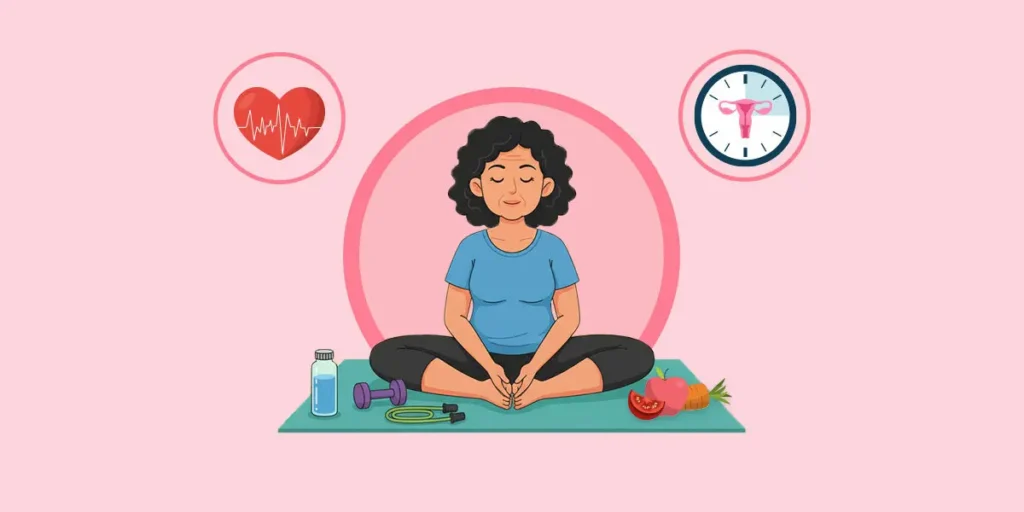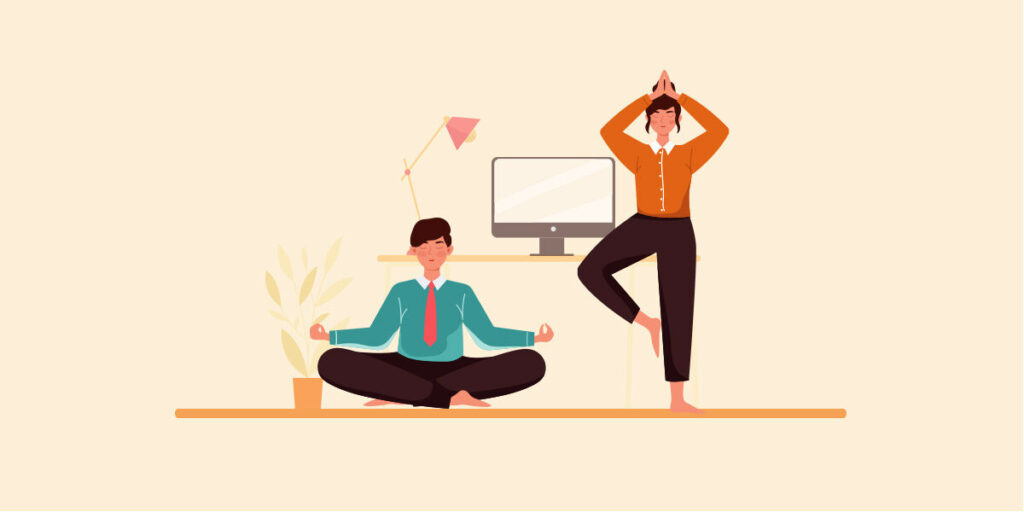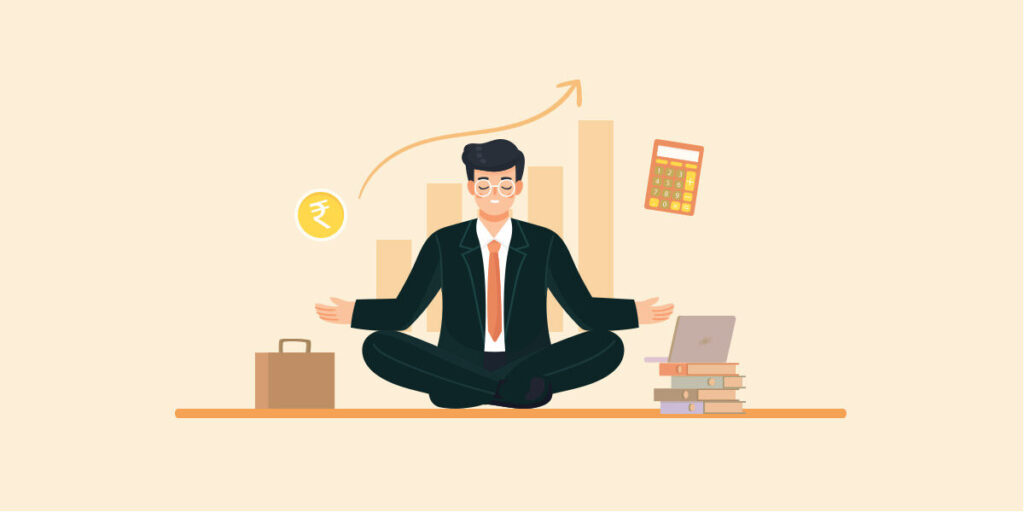Doesn’t it feel like our lives have gone digital these days? It’s impossible to stay away from our screens – be it our smartphones, tablets, laptops, or even televisions. We now use our phones and laptops for almost everything: binge-watching, playing games, chatting with friends, shopping, and remote working.
Technology has undoubtedly made our lives easier in numerous ways. However, the number of times we use screens has increased, leading to health concerns, primarily related to their long-term effects. Prolonged exposure to digital devices can lead to several health issues, and understanding the long-term side effects of high screen time is essential for maintaining overall well-being.
What happens if your screen time is too long? Should we be concerned about excessive screen time impacting our health? Let’s explore the long-term impact of excessive screen time.
Vision Problems

We’ve all experienced that heavy, burning feeling in our eyes after hours of staring at a screen. This discomfort, known as Digital Eye Strain, is becoming increasingly common. The blue light emitted from screens only adds to the problem, messing with your natural blinking pattern and leaving your eyes feeling strained.
Tips for Relief
- Follow the 20-20-20 rule: Every 20 minutes, take a 20-second break and look at something 20 feet away.
- Use apps in your device to reduce the strain or use blue light filter glasses.
- Avoid lights that shine directly into your eyes, or onto the screens you use.
Sleep Disruption

If you’re spending time on your devices before bed, you’re probably disrupting your sleep without even realising it. The blue light from screens interferes with the production of melatonin – the hormone that helps you sleep. Blue light from the screen mimics daylight, suppressing the sleep signal released by darkness. As a result, you find yourself tossing and turning, struggling to fall asleep at a reasonable hour. Over time, this can lead to chronic insomnia and leave you feeling drained the next day.
Tips for Better Sleep
- Avoid screens for at least 1 hour before bed.
- Activate night mode on your devices to reduce blue light exposure in the evening.
- Use blackout curtains or an eye mask to optimise your sleep environment.
Posture and Musculoskeletal Issues

Slouching on your device for long hours stresses the muscles of the neck and shoulders. We tend to focus more on visual comfort than on postural comfort. While children may be less affected by poor posture and lack of ergonomics, the effects can take a toll on their bodies as they grow. As early as your 20s, muscle fatigue can set in, causing more strain and sprain. Such musculoskeletal issues like Tech Neck often develop slowly when we’re too focused on our devices to realise we’re hunching over.
Tips for Preventing Posture Issues
- Ensure your desk setup supports good posture.
- Take frequent breaks to stand up, stretch, and walk around.
- Keep your screen at eye level.
Mental Health Concerns

Excessive screen usage gradually turns into addictive behaviour, and it can reach the point where you’re unable to control the urge to check your phone or notifications every few minutes. Screen time desensitises the brain’s reward system. The time we spend on screens, especially on social media, can foster unhealthy comparisons and feelings of inadequacy. The absence of direct communication makes people more anxious, depressed, lonely, and disconnected.
Tips for Maintaining Mental Health
- Put your phone out of sight.
- Practice mindfulness and make time for activities that promote mental clarity, like journaling, deep breathing with Sukhasana, or brisk walking.
- Turn off or limit notifications on your phone.
Impaired Cognitive Function

Spending too much time online or switching between multiple apps and devices can impact your attention span. The constant notifications and rapid consumption of information can make it difficult to focus on one task for long periods. Over time, this overstimulation can affect your memory, your ability to think deeply, and even your creativity.
Tips for Cognitive Health
- Focus on one task at a time.
- Instead of creating digital art or playing games online, grab a canvas and oil paints, or engage in activities that challenge your brain, like puzzles.
- Resist screen time when you’re bored, distracted, or stressed.
Reduced Physical Activity

It’s no surprise that the more time we spend in front of screens, the less time we spend moving our bodies. With increased screen time, it’s no surprise that we become more sedentary with limited physical activity. The lack of calorie expenditure combined with excessive calorie consumption can disrupt the body’s energy balance and contribute to the accumulation of excess body fat.
Tips for Staying Active
- Try to stay physically active while sitting on a screen, like a 5-minute stretch.
- Encourage physical catchups by meeting face to face.
- Replace screen time with outdoor activities, such as games, walks, or yoga.
Impact on Children’s Health

Children are particularly vulnerable to the side effects of high screen time. Prolonged screen exposure in kids can lead to a variety of issues, from poor vision and disrupted sleep patterns to an increased risk of obesity. Research also shows that excessive screen time can affect a child’s ability to concentrate, develop social skills, and process emotions effectively. What’s even more worrying is that children exposed to high screen time at a young age may face long-term cognitive and behavioural challenges.
Tips for Managing Children’s Screen Time
- Set clear limits on daily screen time (no more than 1-2 hours for children under 18).
- Encourage alternative activities like outdoor play, reading, or engaging in creative hobbies.
- Reduce your own screen time to model healthy habits.
Conclusion: Moderation is Key
To be honest, screens play a key role in our lives nowadays, but they also have a dark side. Balancing screen time is very important. Implementing healthy habits such as taking breaks regularly, setting limits for screen use before sleeping, and prioritising personal interaction can be effective in counteracting the negative impact of overexposure to screens. It’s all about discovering a level that is comfortable for us, allowing us to benefit from technology while also maintaining our health.
Here’s the key point: it’s not necessary to get rid of screen time completely, but rather to find a way to use it that harmonises with a healthier and more balanced lifestyle. If we can be aware of the time we spend in front of screens and make efforts to take care of both our physical and mental health, that would be ideal.
At Habuild, we’re combating the negative effects of excessive screen time by offering a Online Free Yoga Challenge that encourages mindful movement, relaxation, and balance, helping you reclaim your well-being in the digital age.







One Response
It’s interesting how we’ve all become so attached to screens that we forget about the toll it’s taking on our mental and physical health. Great reminder to be mindful of our screen time and take more frequent breaks!